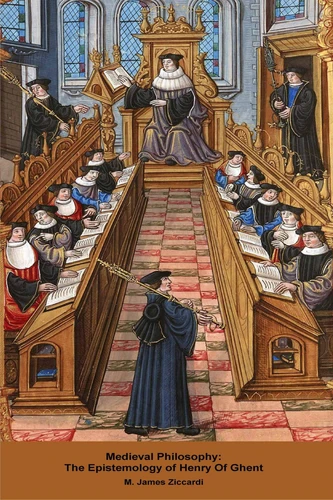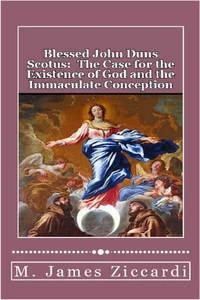Medieval Philosophy: The Epistemology of Henry of Ghent
Par :Formats :
Disponible dans votre compte client Decitre ou Furet du Nord dès validation de votre commande. Le format ePub est :
- Compatible avec une lecture sur My Vivlio (smartphone, tablette, ordinateur)
- Compatible avec une lecture sur liseuses Vivlio
- Pour les liseuses autres que Vivlio, vous devez utiliser le logiciel Adobe Digital Edition. Non compatible avec la lecture sur les liseuses Kindle, Remarkable et Sony
 , qui est-ce ?
, qui est-ce ?Notre partenaire de plateforme de lecture numérique où vous retrouverez l'ensemble de vos ebooks gratuitement
Pour en savoir plus sur nos ebooks, consultez notre aide en ligne ici
- FormatePub
- ISBN978-1-310-02080-3
- EAN9781310020803
- Date de parution05/10/2014
- Protection num.pas de protection
- Infos supplémentairesepub
- ÉditeurJPCA
Résumé
Henry of Ghent is commonly regarded as one the three most important scholastic philosophers of the latter part of the Middle Ages. Wedged neatly between the teachings of Thomas Aquinas and John Duns Scotus, Henry's philosophy encompassed a wide range of topics, including epistemology, ethics, and the natural sciences, all of which he closely tied to the Christian theology of his day. In this book we examine Henry's ideas on epistemology, all of which are put forward in Article 1 of his Summa of Ordinary Questions, entitled On the Possibility of Human Knowledge.
Henry of Ghent is commonly regarded as one the three most important scholastic philosophers of the latter part of the Middle Ages. Wedged neatly between the teachings of Thomas Aquinas and John Duns Scotus, Henry's philosophy encompassed a wide range of topics, including epistemology, ethics, and the natural sciences, all of which he closely tied to the Christian theology of his day. In this book we examine Henry's ideas on epistemology, all of which are put forward in Article 1 of his Summa of Ordinary Questions, entitled On the Possibility of Human Knowledge.






















